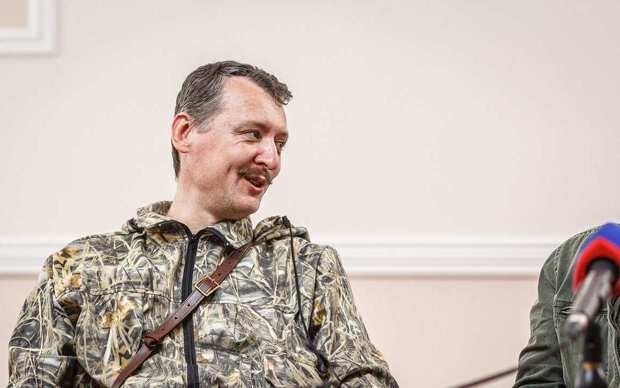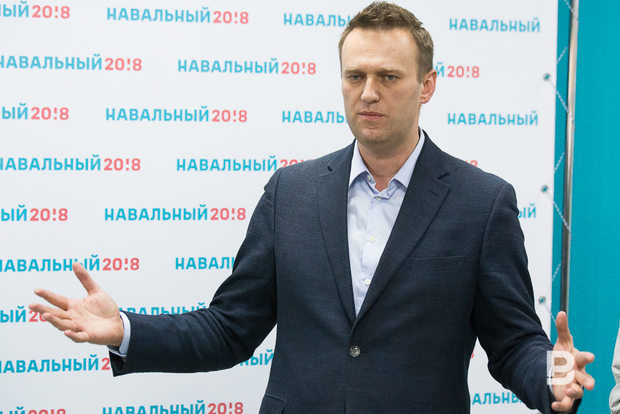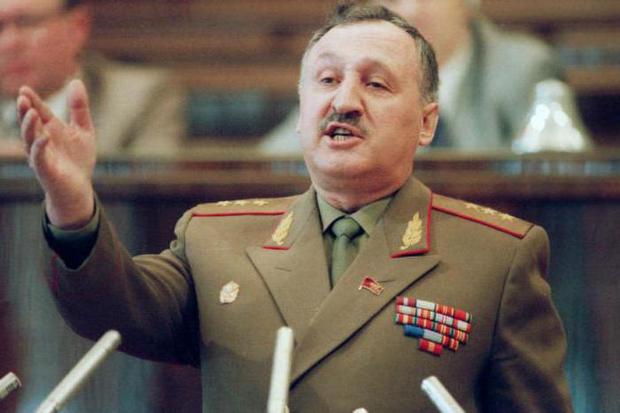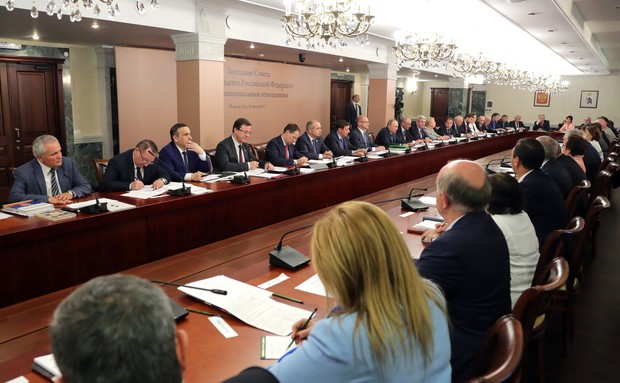Boris Mezhuev: ''There is a crackdown element in Russia…''
The politician about why Navalny is out of his depth and how Tatarstan was affected
In an interview to Realnoe Vremya, famous Russian politician and opinion journalist Boris Mezhuev told about Aleksey Navalny's real safety for the regimen, the West is still non the wiser about Russia and why the discussion of Crimean's return needs to be banned.
Whether Crimea is ours or not – this question can't help but be raised
Doesn't it seem to you that Aleksey Navalny is deliberately promoted as the ''only leader of the protest'' only because he doesn't understand many key issues, as his opponents think, so he obviously out of his depth? (like ''if the leader of the opposition is so, what we can say about other oppositionists and the protest, in general'')
No, I think he is promoted not because he doesn't understand something. Navalny doesn't understand for clear reasons – because the previous symbol of the anti-Putin coalition can't help but feel that this coalition is dissolving. In the past or, more precisely, in the 2011-2012s, this coalition united not only the Liberals but also the Nationalists, the Left, and then he was quite convincing as its cementing factor. But the coalition disintegrated in 2014 because of the 2014 pro-Russian unrest in Ukraine when one part of Navalny's former teammates supported the choice of Crimea and Donbass, thus either switching to the group of loyalists (like Zakhar Prilepin, for example) or conserving its oppositionism but like Igor Strelkov. In other words, it is more radical in the foreign policy than the reigning power.
Navalny is a kind of designed to unite all the Opposition, including its ultra, strictly pro-Crimean and anti-Crimean flanks. And this is why he is afraid of losing both segments of his supporters. It is not possible to unite them with their general programme any more. I mean he clearly does not understand not because he did not prepare for some debates, ''spoke bad'', ''did not care for his face'', etc.
Does he have to perform manoeuvres?
Yes, he has to perform manoeuvres. This is why when he is asked direct questions – by either Sobchak or Strelkov – he tries to avoid the answer.
And I am sure any oppositionist who wants to achieve great success would have to act so in his place. If we don't count those who signed the Vilnius Declaration and support the ''Lenin'' position that the country needs to be defeated in a fight against the foreign opponent (in addition, without hiding it any more). Navalny can't join them – like both Khodorkovsky and Yavlinsky. They all don't understand this issue, in general. But Yavlinsky has recently formulated his position having urged to hold an international conference in Crimea. But, anyway, it looks incoherently from a perspective of both radicals like Kasparov and people who have strong ''Crimea is ours'' positions.

''One part of Navalny's former teammates supported the choice of Crimea and Donbass, thus either switching to the group of loyalists (like Zakhar Prilepin, for example) or conserving its oppositionism but approximately in Igor Strelkov's positions.'' Photo: укроп.org
To put it simply, it is impossible to unite the electorates, for example, Strelkov and Kasyanov. The only possibility to unite them for Navalny is right to strongly adhere to ''Crimea is ours'' positions realising at the same time that the Opposition won't have another more sensible leader. In this case, the Liberals will willy-nilly have to admit Navalny as the only oppositionist having agreed with his ''Crimea is ours'' by pinching their noses. And the relative Strelkov electorate would join him in response. But he won't do it for many reasons we can speak about separately. First of all, because as soon as you are for ''Crimea is ours'', you inevitably start to refer to the Russian power with more understanding even realising all its disadvantages.
Technologically, Navalny is safe
It turns out, and it is obvious, that Navalny just stresses the integrity and power of Putin's position. And does it mean that he can be registered as candidate for the presidency without fear?
Yes, de facto. He demonstrates that nobody but Putin will be able to unite the society including those of ''Crimea is ours'' and ''Crimea is not ours''. Actually, it is not very good for the power. An absolute impossibility of appearance of any sensible, constructive, as it used to be said, opposition is not a good factor. It doesn't strengthen but weakens the power. People who are angry for many reasons are switching to national nihilism. It is happening everywhere.
As for registration as candidate in the election, the problem is different. Here it depends on Navalny himself. The elite pushback is gaining strength, you know, and the power also understands. The elite doesn't have an intelligible speaker. It is not a fact that it is Navalny. Yes, partially, he is the voice of the elite pushback, but partially, also the voice of populism. He keeps the balance very well and logically. Sometimes, his rhetoric reminds the Red and Browns of the 90s when he criticises privatisation results, so to speak. For instance, his recent polemics with Alisher Usmanov – he led it as a communist and patriotic radical of the 90s: ''down with privatisation results, down with extortionate loans-for-shares, how you purchased your money, in general''. He talked about it all in such a calm way because this topic is not dangerous now. But it is not the main topic, it is not what caused the major split. Crimea is the main reason for the society's division. Here you can't get away with general words.
Crimea is not just a territory, not just an episode of Russian history. Crimea is a question about whom you are with: with the ''world civilised society'' or Russia? With the external or internal force? It is impossible to disguise it, it is impossible to shut in from this problem. If you switch to Putin's position on this issue, you involuntarily weaken your oppositionism. And if you have to neglect that ''Crimea is ours'', sooner or later you will talk about the necessity of our country to be defeated.

''Partially, he is the voice of the elite pushback, but partially, also the voice of populism. He keeps the balance very well and logically.'' Photo: Maksim Platonov
So, technologically, Navalny is safe, of course – because of his uncertainty. He can be registered. Maybe not. Because the tension in the foreign policy is very strong. It is difficult to hope that ideal democracy will reign here in such conditions. So much will turn on Navalny's popularity and the degree of his scandalousness. It would be strange presuppose that, for example, some candidates sympathising Hitler's Germany could win the elections in Great Britain in the 40s when the Hitler aggression was directly threatening it. It is clear the regime, on the contrary, quickly stood together around the necessity to protect the country's sovereignty. Obviously, those who thought they needed to negotiate with the opponent were separated from power.
West is still none the wiser about Russia
But at the same time, you say that even if the situation is good for ''uniting'', we have all the signs of the growing elite pushback. What do you mean?
I won't call surnames, so that it won't look like denunciation. Some of our authors openly, popularly and without shame say, for example, that Russia needs to surrender to the United States. They say it in completely legal media, not to mention social networks. It is not a personal point of view of an opinion journalist, it is not just an expert's opinion – it is a point of view of a certain segment of the elite. Some part of our elite thinks how to agree with the West ''on good terms'' or its hopes for the conservation of the previous level of everyday comfort, visa access to Europe, possibility of studying and receiving treatment and so on – these hopes are under big question. The real danger of the country's closeness has very clearly loomed in front of Russia for the first time.
It irritated the elite as early as 2014. But then there was hope that the West would change, ''understand'' Russia. Many people expected a new generation of politicians who would be able to have more realistic positions on Russia, have more understanding of its interests to come to power in countries. These forces were seen. But we did not see changes. How did Brexit favour us? Russia was glad about Brexit's victory, I myself was glad about Nigel Farage and his party's stronger positions. And these changes seemed not only to us – even Barack Obama accused Russia of Brexit for some reason. So what? Has Great Britain been closer to Russia even just a bit? No, now we even count on Brussels more than London. The same thing is with the USA where the situation is a bit complicated. But there is nothing to be glad about as well.
To ban the discussion of Crimean's return
You compared the situation of Russia in 2017 and Great Britain in 1940. Is there any kind of exaggeration here or is everything actually so serious?
There is some exaggeration, of course. But, in general, the situation requires a national unity. National unity is not just a word, it is a serious thing including restrictive measures. This is why I think we can't allow publication of articles that Russia needs to return on the page of a radio station financed by Gazprom. If we really want to save the country now, so that it will withstand it at not the best time for it, we need to treat all the friends as liberal as possible, that's to say, those who have a pro-Crimean point of view and as strict as possible to those who have alternative positions. Now we are seeing something different.
For instance, in the newspaper I worked in, Izvestiya, all the opinion journalists who had pro-Crimean positions were dispersed. Some of them were divested of a possibility to be published in other newspapers, at least for some time. Personally, I did not suffer from this crackdown a lot, but some of my colleagues faced unexpected ostracism. God knows what left from the Opinion Journalism Department in this newspaper as a result. It can't be compared with the newspaper where Maksim Sokolov, Eduard Limonov, Maksim Kononenko, Ilya Smirnov, Kirill Benediktov, Igor Karaulov and many other friends of mine and like-minded people were published. Now they are all top figures in their media where they are published. First of all, they all were gathered in one place and fought for one idea.
Such people expressing a completely radical oppositionist opinion easily say what they think, Echo of Moscow publishes them, a great number of influential newspapers lists them as employees. We have politicians who go to elections fighting for Crimea's return, deportation of the Russian population and populating Crimean Tatars. They lose these elections, of course. But the power doesn't care about them. I don't want to say somebody needs to be jailed or deprived of civil rights (people understand me improperly for some reason). But Russia needs to demonstrate an absolute national consensus on this issue, without doubt.

''General Makashev with his fight against ''the Jewish'' is still remembered. However, anti-Semitism died under Putin. It just doesn't exist now.'' Photo: fb.ru
I would put the following example. Anti-Semitism was very strong in Russia in the 90s. It was a really serious problem. In 1993, on the opposition days of Yeltsin and the Supreme Council, a smart person could not be near the White House without pinching his nose (even if he sympathised the Supreme Council): unfortunately, the motto ''hit the burring'' was very noticeable. It was a really very and very serious phenomenon. Corresponding brochures appeared, mottos were heard from time to time, and General Makashev with his fight against ''the Jewish'' is still remembered. However, anti-Semitism died under Putin. It just doesn't exist now. It is maybe present in some corners, I don't know, maybe somebody writes something on Facebook. But public statements on this topic immediately lead to this person's marginalisation. It is not a result of some ''liberal dominance'', works of ''liberal gendarmerie'' like in the 90s. It is just a clear position of the country on a certain issue, it is clearly and accurately defined. If you say ''down with Judaism, the Jewish are bad people'', it means you don't exist in the social life and politics. Where is General Makashev now? Where are these political activists? Where are the organisations that distributed lists of Jews, Black Hundred papers (that were sold right near the Lenin Museum in Moscow, as far as I remember)? It all was quickly and severely suppressed.
And no anti-defamation league is needed.
Yes, it is just the country's clear and severe position. To call a spade a spade – that element of authoritarianism that any society can't help but have. Nobody accuses Putin of suppressing anti-Semitism by authoritarian methods. And, by the way, the victory over anti-Semitism is probably one of the factors thanks to which our regime maintains stability during huge challenges of the foreign policy.
Flattering about Crimea's return or sale needed to be solved in the same way. Instead, we see TV shows and discussions every day where this problem is discussed including with some Ukrainian or pseudo-Ukrainian experts. I understand we can discuss this question in the locker room, in elite groups: whether it was sensible in 2014 or not, whether we could do something in a different way or not. But as it was done, how can one discuss it looking at people's eyes whom you brought to Russia having given them refuge and protection? It is impossible to play it back any more, and the country needs to demonstrate an absolute national consensus on this issue.
Putin would not be afraid of any elite pushback if he were backed by a national consensus, if this national consensus had lower structures, its anti-defamation league, if you like, if the adoption of ''Crimea is ours'' were the same admission to the legal terrain like the demonstrative refusal of Judaeophobia for many radicals in the 1990s. But we don't see anything similar, there is no unity. On the contrary, there is a comfortable feeling: it is so good that our hundred of flowers blossom! It is so good that we have different kinds in society, they are all wonderful, and we consider the opinion of each one important. Moreover, the opinion of the majority is as important as the opinion of the minority.
The West uses this absence of unity by constantly thinking that the split that doesn't disappear will lead to a change of Russia's position on many issues in the end.

''Putin would not be afraid of any elite pushback if he were backed by a national consensus, if this national consensus had lower structures, its anti-defamation league, if you like.'' Photo: kremlin.ru
Is what is happening to Tatarstan this year evidence of the external pressure on Russia when one has to crack down?
Yes, of course. There is a crackdown element. It refers to precisely regional managements. Let's us be frank, it is natural. We and our colleagues who were for ''civilised realism'' told in the 90s: as soon as the conflict with NATO reaches Russia's borders, the process of consolidation of power in the centre and regions will be very strict. Everything that is happening now in Russia including federal relations is considerably conditioned by reduction of space of the external Russian liberty. Russia was surrounded by neutral territories, it could act in its near-border countries more or less freely. In general, we did what we wanted in the 90s. Who cared for what we did in Tajikistan or Azerbaijan where Elchibey's regime was toppled with our help? Federal liberty, so to speak, reigned in Russia then.
To be continued